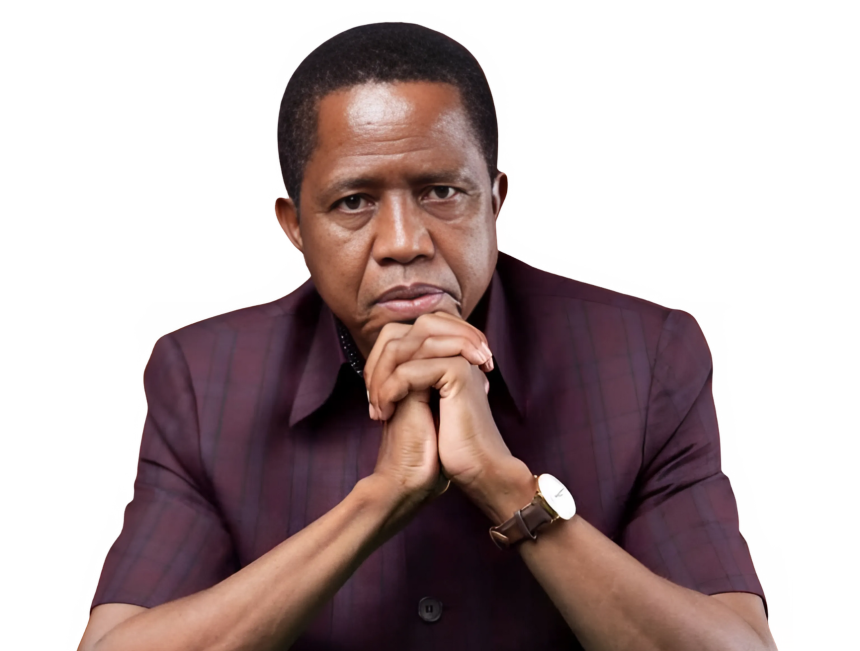By Brian Matambo – Sandton, South Africa
The battle over the burial of former President Edgar Chagwa Lungu is more than a legal fight. It is a moral test that President Hakainde Hichilema has already failed. His government’s conduct reveals hypocrisy, overreach, and a chilling lack of sincerity.
The facts are simple. Edgar Lungu died in Johannesburg while under private medical care. He was not on state duty, nor under state sponsorship. His family carried the burden of his treatment, just as they have carried the humiliation of seeing his benefits stripped and his wife and children dragged through endless corruption investigations. Yet in death, Hichilema now claims the right to honor him with a state funeral. This is not respect. It is political theater.
South Africa, where this dispute is being heard, operates under Roman-Dutch legal principles, just like Zambia. Under this tradition, a corpse is regarded as res extra commercium, outside commerce. It cannot be sold, contracted over, or treated as property. As Advocate Tembeka Ngcukaitobi told the court, “You cannot contract over a corpse.” The Zambian government’s claim that there was some agreement to bury Lungu at Embassy Park collapses under this principle. Human remains are not negotiable instruments.
South African law goes further. It sets a clear hierarchy of who decides burial: first the spouse, then the children, then parents, and then siblings. The state does not feature on this list. Esther Lungu, as widow, has the primary right. That is both law and common sense.
And here lies Hichilema’s hypocrisy. This is the same government that took away Lungu’s retirement benefits, denied him state medical cover, and pursued his wife and children in court. How can the same state suddenly claim it wants to “honor” him with a state burial? How can Hichilema invoke dignity for a man he has spent four years publicly degrading? As Ngcukaitobi reminded the court, “You cannot reinstate benefits to a corpse. A corpse has no rights. Benefits are for the living.” What Hichilema seeks is not dignity but control, not honor but political symbolism.
Cultural authenticity also condemns Hichilema’s position. Zambian funerals are family-driven. In villages, burials take place swiftly, guided by family members, their cries, their rituals, their faith. Presidential burials at Embassy Park are a modern political invention, an urban tradition with no deep cultural roots. If Hichilema truly respected Zambian culture, he would have stepped back and allowed the family to decide. Instead, he has tried to impose state power where culture and law both say the family leads.
Even legally, Zambia’s case is weak. Under South African procedure, foreign law must be proven as fact through expert testimony. Zambia failed to do so, undermining its own argument. Worse still, Hichilema’s government is effectively attempting to project Zambian law into South Africa. That is extraterritorial overreach, and it offends the very principle of sovereignty that Hichilema himself invokes in other contexts.
The hypocrisy cuts deeper. If Hichilema insists that Lungu must be buried at Embassy Park, then why did he not ensure that Lungu was treated in a Zambian hospital? Why did he not restore his benefits and care for him as a former head of state? You cannot outsource a man’s medical care abroad, strip him of dignity at home, and then reclaim his body in death by force of law. That is cruelty disguised as patriotism.
Ultimately, this case is not just about Edgar Lungu. It is about whether a government can invade the most sacred of family rights, the right to lay a loved one to rest. It is about whether sincerity and compassion still matter in leadership. By suing a grieving widow on the very day she was preparing to bury her husband, Hichilema showed the world his true face: vindictive, hypocritical, and utterly out of touch with the values of respect, culture, and faith that Zambians hold dear.
The law says the widow decides. Culture says the family leads. Jurisdiction says South African law prevails. Yet Hichilema insists otherwise. That is not leadership. It is arrogance. And it must be called out for what it is: the politicization of death, the exploitation of grief, and the abuse of state power.



Leave a Reply